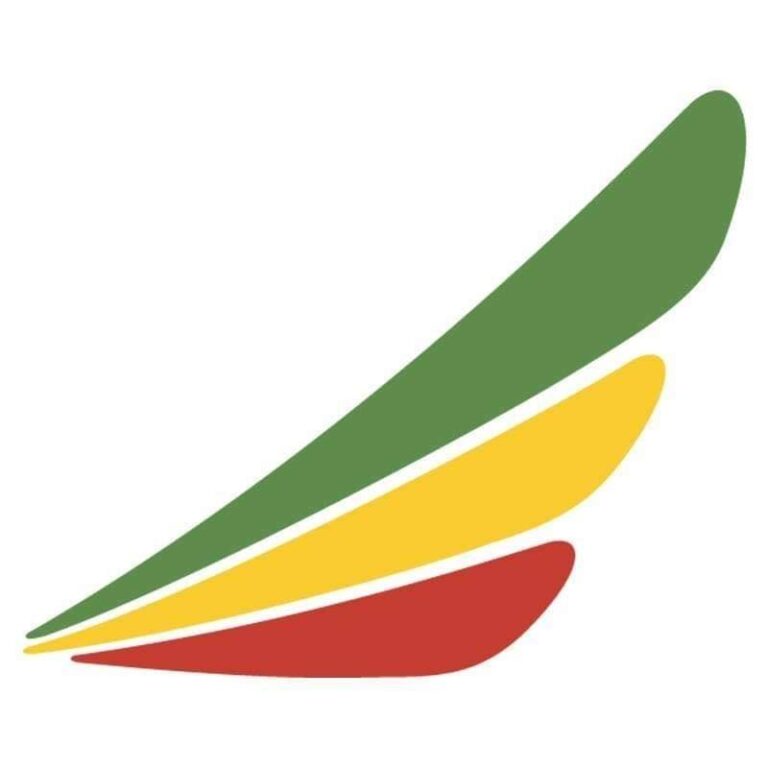To mitigate the damages of the pandemic on industries that have fallen as far and as fast as tourism, hospitality and the horticulture sector banks are taking different measures. This week Enat Bank, Wegagen Bank, Abay Bank and Dashen Bank decided to reschedule annulling or reducing interest rate and reschedule loan for sectors like hospitality, tourism and horticulture for three months and above.
Enat Bank has announced to cut interest rate for these highly affected sectors. Enat also decided to remove penalty on those who do not pay their loan on time because of the pandemic. As stated by the president Wondwossen Teshome so far the bank gave around 100 million birr loan for these sectors. The bank has also made some adjustments for international banking by slashing Letter of Credit service charge. Importers that import goods related to COVID 19 will get a 50 percent discount in the service charge and commission payment.
Abay Bank has also announced to cut interest rate and principal payment for three months. The bank has lifted interest rates from 0.5 percent to 3 percent depending on the sector. “This will cost the bank to lose more than 55 million birr income however to remain in the business we need to support our customers,” said Belete Dagnachew, Vice President of the bank. Abay’s revised rate will remain active until the pandemic is under control.
Wegagen Bank also announced that a 53 percent interest rate cut to hotel, tourism and tour operators and 39 percent cut for the horticulture sectors for three month.
Dashen Bank in its part also cut different kind of service charges and interest rates to those that are affected by Novel Coronavirus (COVID-19). The sectors include transport, manufacturing, hotel, tourism, horticulture and education sectors. As stated by the bank Dashen has cut off up to seven percent interest rate.
Starting from March 13 when the first case was reported in Ethiopia the overall economic activities of the country has been affected. Through then the government has been taking different measures to mitigate the risks. As one of the measures taken by the government the National Bank of Ethiopia has been calling banks to come up with their own initiative to mitigate the effect on their clients mainly for those who are highly affected because of the outbreak of the corona virus.
Based on that, banks have submitted their proposal on how to contribute to the mitigation strategy for their clients.
Private banks helping their customers to mitigate the effects of COVID 19
Bottlers request suspension of excise tax, VAT
Ethiopian Bottled Water, Soft Drink, Fruit and Vegetable Manufacturing Industries Association (EBSFMIA) ask Ministry of Finance (MoF) to suspend excise tax and value added tax (vat) for the time being.
In a letter the association sent to MoF stated that its members are highly affected because of the outbreak of coronavirus.
“As per our evaluation the sector particularly the bottled water business is significantly affected by the outbreak,” the letter signed by Ashenafi Merid, General Manager of EBSFMIA, states.
It added that the pandemic that follows by ceasing businesses at Hotel and restaurants has significantly dropped the sales of water bottlers business.
“Cancelation of mass gathering like conference, concerts, exhibitions and other meetings and suspending day to day operations at Addis Ababa based international and continental organizations and diplomatic missions have also contributed for market slowdown,” the association explained.
According the EBSFMIA, these effects has dropped the bottled water business by up to 85 percent and that forced them made them unable to settle the dues that were supposed to be paid for the government.
In its letter copied to the Ministry of Trade and Industry and Ministry of Revenue the association asked the government to cease the excise tax payment. Besides that it demands the lifting of vat for some period, but it did not state a given period.
EBSFMIA has also claimed to benefit from the loan interest rate relief and rescheduling of loan settlement period at banks.
“If such decisions could not be applied the sector will be in trouble to pay wages and continue its operation,” the letter states.
Since COVID 19 imposes challenges on the economy the government has been taking several measures for vulnerable sectors. At the same time financial institutions have also applied loan settlement reschedule for almost all who demanded, while they have also cut interest rate fully or partly for some sectors like hospitality, horticulture and industry sector for a given period of time.
Meanwhile vat payment has been rescheduled by the government. In this regard EBSFMIA would be the first that demands the annulations of such kind of taxes including excise tax.
The water bottling sector is responsible to collect 10 percent excise tax from sales. According to information Capital obtained from the sector, some big bottlers may pay up to five million birr per month as excise tax.
Ashenafi expressed his hope that the government will come up with good response to save the sector.
He told Capital that the sector has created about 50,000 jobs and rapidly growing.
“At least we need some relief to alleviate this bad situation,” he added.
According to the General Manager, the partial lockdown that suspend most activities particularly mass gathering has seriously affected the sector.
“Different meetings and conferences have been the major source of business for the bottled water industry that is currently fully abandoned all over the country due to COVID 19,” he says, “besides that different offices and the hospitality business are major users of bottled water but currently offices like international organizations have almost closed their offices and the business activity at entertainment areas also dropped, which directly affects us.”
He recalled that at the initial stage when COVID 19 case was reported in Ethiopia the market showed a boost because of the households, who were buying bulk of bottled water but it is now almost nil. “Households are not potential customers in the past,” he added.
The association has over 80 members from over 90 water bottlers in the country.
Gov’t buys 400,000 MT of wheat from Australia
Negotiating to add 200,000 MT more
Public Procurement and Property Disposal Service (PPPDS) has agreed with Australian government to procure USD 120 million worth high quality wheat, while the final go head will be approved by Ministry of Finance.
Early this year a delegation led by Eyob Tekalgne, State Minister of Finance, that include heads of PPPDS, Ethiopian Trading Businesses Corporation, and Ethiopia National Disaster Risk Management Commission visited Australia, Russia and Ukraine to conduct government to government (G2G) meetings.
On these visits PPPDS agreed with countries to buy strategic commodities directly by cutting out middle men to tackle challenges like high price and delays on procurements.
Based on that the Service strike a deal with the Australian government to procure 400,000 metric tons of durum wheat, which is highly quality than milling wheat with USD 120 million.
Tsewaye Muluneh, Director General of PPPDS told Capital that the price is a little bit higher than other conventional wheat products. Experts said that durum wheat is high quality than milling wheat and that is the reason the cost is a bit higher than the conventional product that the country currently imports.
She said that as per the agreement the amount of USD 120 million will be settled within a year time.
“We are not new to importing durum wheat from Australia,” an expert on the sector told Capital. In the past a pasta factory located in Dire Dawa was using this high quality durum wheat that is also called as pasta/macaroni wheat imported from Australia.
Tsewaye added that in relation with the COVID 19 outbreak the government is working with the Australian government to import an additional 100,000 metric ton wheat at the cost of USD 30 million.
Tsewaye said that the final decision will be given by the Ministry of Finance.
Currently Canada, United States, France, Ukraine and Australia are the top five exporters respectively.
The Director General said that to undertake similar moves from other countries is under process. “The bank to bank relation to commence similar direct procurement with Russia is on the process,” she says, adding that on this scheme the Russian Export Import (EXIM) Bank will represent the country and the state owned Commercial Bank of Ethiopia (CBE) will undertake the process on this side.
“This week CBE has come with its response that will put the process on another step,” she explained. The procurement from Russia would be 100,000 metric tons.
“We shall buy the grain on the G2G manner since we do on other procurements like fuel,” Eyob said few months ago about the decision to buy wheat from governments directly.
PPPDS believes that the direct procurement shall bypass long bidding processes.
The government allocates over half a billion dollar to import wheat. Currently the government is aggressively working to cut the import and introduce massive lowland irrigation scheme targeted to cut the import within three years as of this budget year.
Ethiopian Airlines enhances services with cargo app
Ethiopian airlines announced that it has developed a digital mobile app and chatbot-assisted shipment tracking service to elevate cargo customers’ experience.
“The cargo mobile app is developed by our in-house digital team that has been building up its expertise by developing different applications including our passenger mobile application,” said Mihiretab Teklay, Director, Group Integrated Marketing Communications.
The team has leveraged its experience to develop the cargo mobile app which was launched on April 16, 2020 and is available to download from both Play Store and App Store.
Ethiopian Airlines was Africa’s busiest carrier, making more than 350 flights per day to more than 120 destinations.
To survive from the recent damage the airline is going on a new stream of income, including cargo and MRO business and recently the airline has converted its Boeing passenger aircrafts to cargo.
“We are now focusing on cargo. The cargo business is relatively doing well because urgently required medical supplies are needed all over the world from east to west, north to south and so on. We are also trying to convert some of our passenger aircraft to cargo,” said Tweolde Gebremariam CEO of Ethiopian Airlines.
Ethiopian has seen an increase in the demand of cargo service in the wake of the COVID-19 pandemic. “The customer contact channels we used to serve our cargo customers were less than efficient in the face of the ballooning demand for air cargo service,” says Mihiretab, “that is when our digital experts put their heads together and came up with the cargo app to circumvent the lengthy process and bring the service at customers’ fingertips.”
The initial self-service features of the cargo app include checking flight schedule, cargo tracking from booking to receiving, checking the status of shipments and initiating charter request.
Ethiopian Cargo has extended its reach to 74 destinations globally and caters to charter flight needs in the world; carrying much needed medical supplies in the ongoing fight against COVID-19.
“The pharma wing housed within our cargo facility has been very critical particularly to handle and distribute medical supplies across Africa and beyond as part of the efforts to tackle COVID-19,” added Mihiretab.
Through its facilities and modern freighters the airline is being chosen by the international community as the major cargo partner and suppliers of medical equipments across the world to combat the pandemic.
Recently the airline has successfully distributed the three batches of medical supplies from Jack Ma and Alibaba Group to African countries.
According to Mihiretab, currently, the airline operates over 100 charter flights per month and generate revenue that help it to cope up the current crisis.






